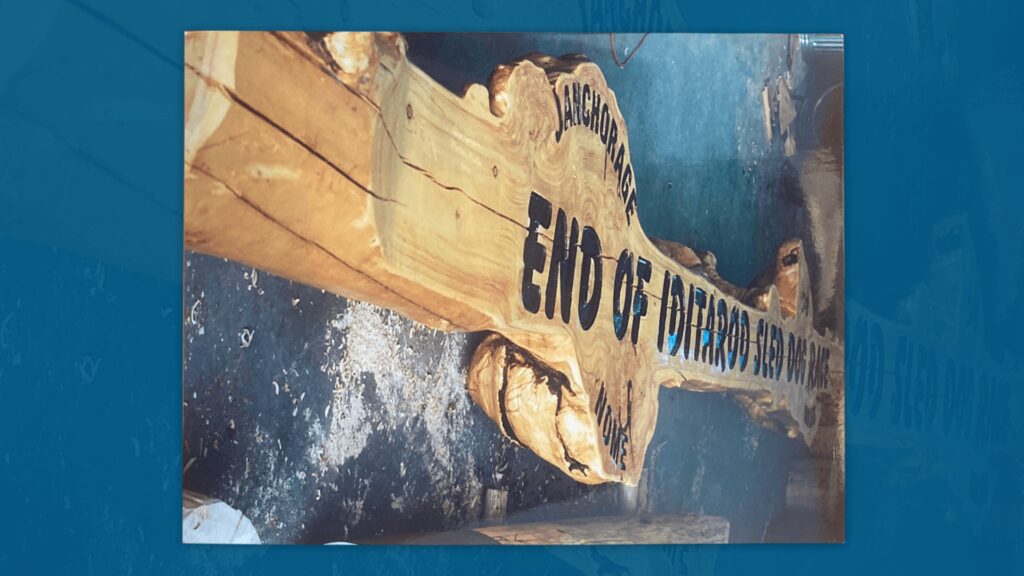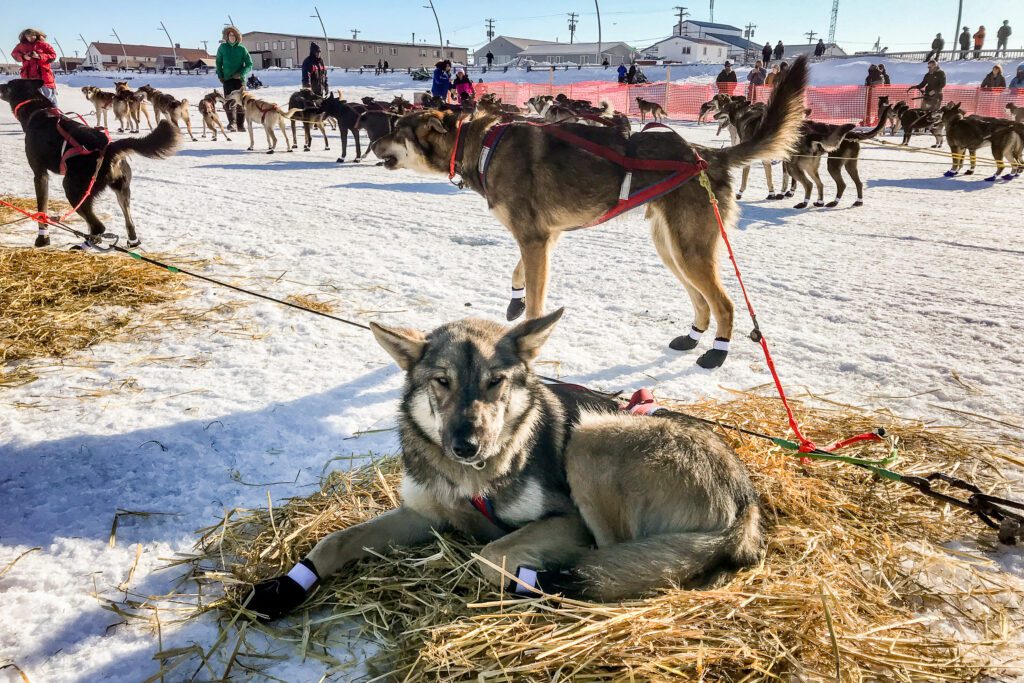Iditarod teams are taking their 24-hour breaks at checkpoints across Alaska’s Interior. KNOM’s Ben Matheson has more from Takotna about how mushers are making the most out of their biggest rest period of the race and preparing for the miles to come.
Tim Pappas is cooking up a big meal for his dogs in an insulated cooler.
“It’s just pork trimmings, so there is a lot of fat, a good amount of meat, water, and Now I’m mixing kibble in….make a nice mixture.”
Pappas is running the Buser kennel A team this year in his second race. This is his second feeding in Takotna, and he’s happy about how the first went.
“They devoured everything, it was awesome.“

Mushers are doing everything they can to get as many calories as possible into their dogs during the break. Thomas Waerner is sprawled out on his dogs’ straw bed, gently serving up thick pieces of soggy bacon to his dog Bibbi.
“I have one dog who needs a little extra care to eat, some I’m hand feeding him to get him started. If you don’t get the calories in, he will not [get] to Nome, and I would like him to get to Nome…“
The past few cold nights temperatures have plunged to below -30 degrees. That can zap calories out of the dogs. Anna Berington is trying a new technique for getting fat into her team. She sent out four pounds of butter in her drop bag.
“They’ve never had it before, so they’re like what the heck is this. I should have practiced it in training more, but out here its a good fat source…if they eat it that’s great. If not, then I spent some money on sending butter out here that I didn’t have to.”
Three days into the race, most mushers have only grabbed a few hours of sleep and are trying to log naps between feedings. Beringtons’ twin sister, Kristy, says the 24-hour break is all about the dogs.
“You come last in the whole scheme of things of course. Then, you get to eat and sleep. Of course, I got plenty of sleep on the run from Nikolai to McGrath. I don’t know – I can sleep on the runners, stay standing, and not let go of the sled, but I’ve trained myself over the last 10 years to do a pretty good job.”
The “24” is also a chance to adjust to the curveballs of the first few days. Last year’s winner, Pete Kaiser, has a few dogs that went into heat, making for a distracted team that wasn’t eating as well. After a big feeding, he’s looking forward to getting onto the next stage.
“Mainly getting these dogs to eat and becoming more of a team than a discombobulated unit. If we can get them focused on eating and running down the trail more than their extracurricular activities they want to partake in, so far we’re still trying to sort that out.”
The first teams will leave from Takotna in the early morning hours Thursday. From Takotna, the trail turns north to pass through the old Gold Rush checkpoints of Ophir and Cripple.







